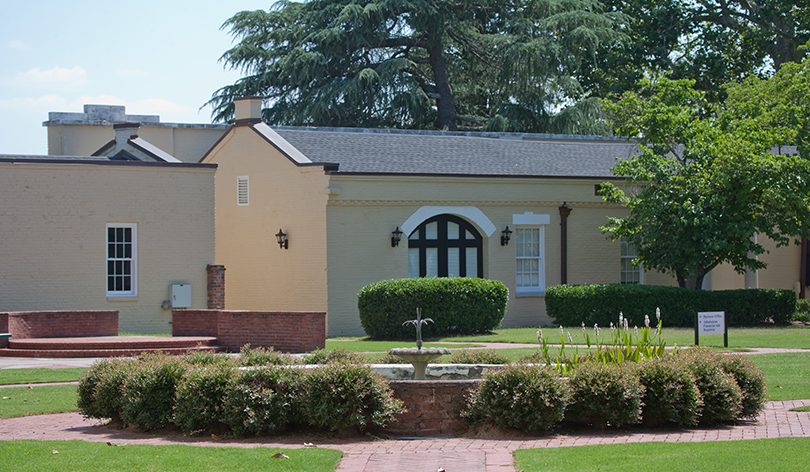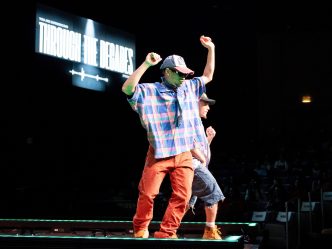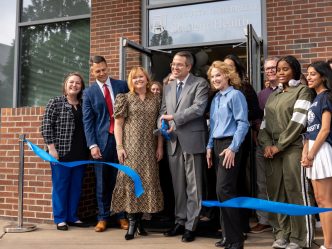In 2016, Augusta University unveiled its inaugural quality enhancement plan, Learning by Doing, bringing students and faculty together through experiential learning practices that push students to explore beyond their boundaries and learn about subjects that challenge them.
However, experiential learning is nothing new to the university. Programs across campus have worked for years to bring new opportunities to students, including the Study Abroad Program, the Center for Undergraduate Research and Scholarship (CURS) and the Honors Program.
Dr. Christina Heckman, associate professor in the Department of English and Foreign Languages in the Pamplin College of Arts, Humanities, and Social Sciences, is the chair of a task force of faculty and administrators who have worked to develop an initiative for student experiential learning programs.
“We were looking for a … unifying, high-impact experience for undergraduates,” Heckman said. “These high-impact practices are all about helping students to meet people who will mentor them, whether those are peers, faculty or staff members, and who will help to build a network that will help the students succeed.”
Bringing these concepts under one initiative helps to invest in undergraduate student development and inspire independent thinking from both the students and faculty. Like a table, the undergraduate development is supported by four legs: CURS, Study Abroad and the Honors Program, with the fourth leg offering opportunities such as internships and service learning.
“We have, what I consider, three crown jewels — undergraduate research, honors and study abroad — and these are high-impact practices practiced across the country over the past 25 years,” said Dr. Chad Stephens, associate professor of chemistry in the College of Sciences and Mathematics. “All of these are important, and all of these concern students. Some students might want to go down to the Richmond County courthouse and do an internship down there, and other students might want to just be in the Honors Program and do something great there. We have something for everybody.”
Dr. Zach Kelehear, vice president for Instruction and Innovation, is heading up the task force of faculty and staff dedicated to helping students through these high-impact learning practices.
“What we’re trying to do is engage — early and often in substantive ways — a learning relationship with our students,” Kelehear said. “How can it be meaningful in terms of not only content but where and how we provide instruction? Those … what I call ‘high-touch,’ deeply engaged interactions will make Augusta University and the undergraduate experience meaningful. It will create a mindset that sets this place apart.”
The university’s goal is to develop faculty members’ ability to foster student growth. This means that learning by doing aims to encourage both students and faculty in their work, and the work of their colleagues.
“We want the faculty to be different,” Kelehear said. “We want them to be free to experiment in their disciplines.”
In other words, the university seeks to answer Learning by Doing in experiential ways.
The unification of these programs across campuses — and faculty across disciplines — offers an immersive experience in a range of high-impact programs and encourages student retention by investing in the search for knowledge and the sharing of knowledge.
“We’ve been able to expand a lot onto the Health Sciences Campus,” said Dr. Tim Sadenwasser, director of the Honors Program. “Many of our students are pre-med or pre-health sciences students, so for them to be able to do their research on the Health Sciences Campus really gives them a professional advantage. And after consolidation, this has been a way for faculty down there to learn what goes on up here on Summerville.”
According to Kelehear, consolidating experiential learning opportunities under one administrative initiative helps focus student development and faculty engagement, which helps provide the best learning outcomes for students.
“I want to be of service to the faculty and the students with whom they work,” Kelehear said. “I think the faculty’s work is so powerful that I don’t want students to miss that chance. If we can engage them with remarkable teaching and thus make them more inclined to stay at Augusta University, the students’ presence would be a gift and their persistence would be a fine measure of quality teaching.”
 Augusta University
Augusta University




